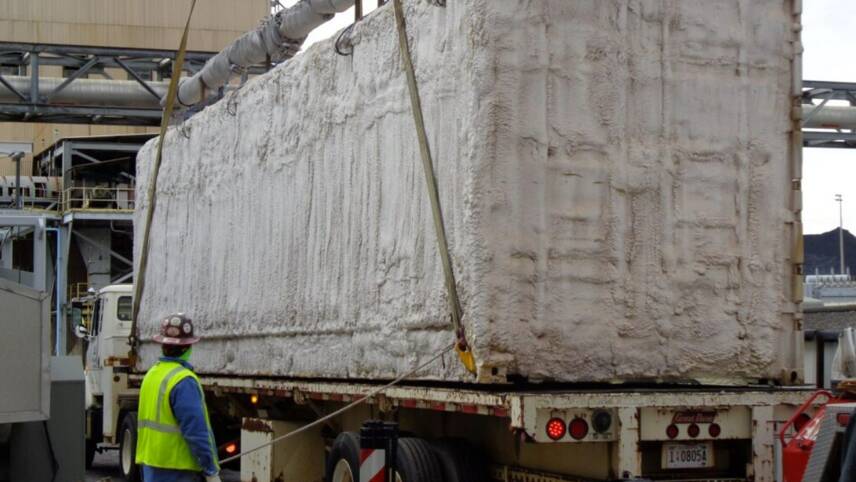Register for free and continue reading
Join our growing army of changemakers and get unlimited access to our premium content

Pictured: Calcium carbonate made using dilute CO2. Image: CarbonBuilt/ National Carbon Capture Centre
Announced today (12 April), the advance market commitment is being supported by McKinsey & Company, Meta (formerly known as Facebook), Shopify, Stripe, and Google’s parent company Alphabet. Inc.
The commitment is being called ‘Frontier’ and will be a wholly-owned subsidiary of Stripe, which will aggregate demand, conduct due diligence processes to select carbon removal partners and facilitate purchases. An external team of academic advisors and technical reviewers have been formed to help facilitate the process.
For carbon removal technologies to be supported by Frontier, their developers will need to prove that they are able to store carbon permanently, at a cost of $100 per tonne or less. The amount of carbon that the $925m will buy will depend on which technologies are deployed, and when.
Frontier has also stated that it will only support technologies with the capacity to scale, produced and managed by companies with strong commitments on public engagement and a willingness to “actively mitigate negative externalities on an ongoing basis”.
Projects which Stripe is already supporting utilise technologies include direct air capture, mineral weathering, injecting CO2 into rock and reducing ocean acidity to increase its natural carbon-capturing ability.
Man-made carbon dioxide removal technologies are in their commercial infancy. By the end of 2021, fewer than 10,000 tonnes of CO2 had been permanently sequestered using these technologies – equivalent to less than 1% of global emissions in 2021. While organisations including the Intergovernmental Panel on Climate Change (IPCC), Energy Transitions Commission and Centre for Climate Repair have concluded that carbon-negative technologies are needed to give humanity the best chance of delivering net-zero, there are significant risks that they will not commercially scale due to technological challenges, with many thought leaders warning nations and corporates against framing them as a silver bullet.
With this in mind, Frontier has stated that it will only undertake large-volume purchase agreements for growth-stage suppliers already scaling technologies. For early-stage pilots for newer technologies, lower-volume agreements may be struck.
“With Frontier, we want to send a loud demand signal to entrepreneurs, researchers, and investors that there is a market for permanent carbon removal: build and we will buy,” said Stripe’s head of climate Nan Ransohoff.
Work underway
Stripe first announced plans to start purchasing carbon removal in 2019, with an initial commitment of $1m. Other commitments made since then, including a $6m commitment in December 2021, have taken Stripe’s total pledge to $15m. Shopify has also been investing in carbon removal solutions since 2019.
Alphabet, Inc. and Meta have not invested in carbon removal technologies before but are both working towards net-zero value chains by 2030. Both firms had previously stated an intent to invest in engineered carbon removal solutions, alongside nature-based solutions, to meet these goals.
McKinsey, meanwhile, is participating in Fronteir through its McKinsey Sustainability arm, which provides environmental services to clients. All clients are encouraged to at least halve emissions by 2030 and target net-zero by 2050 at the latest.
It bears noting that Stripe’s climate strategy was recently criticised by As You Sow, which accused the payment platform of not laying out ambitious plans to reduce emissions before going for offsetting and removals. Other firms facing that same criticism included Square, Visa and Home Depot.

